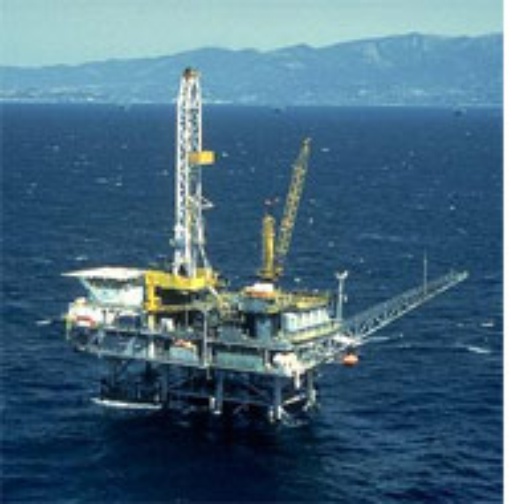Resolving conflict or securing trade interests?
Published on
Oil. It’s the most important commodity traded internationally and all industrial economies heavily depend on it. So just how much influence does it have on world conflict and foreign policy?
 It seems that wherever there is oil involved, there is trouble. From the Japanese attack on Pearl Harbour to the American invasion of Iraq, oil has played role; either encouraging diplomacy or, more commonly, acts of aggression. One of Hitler’s aims in the Second World War was to capture Romanian, Persian and Russian oil fields in order to provide himself with sufficient fuel to pursue a war against America. The Pearl Harbour bombings were a direct result of the United States’ shipping embargo against Japan, which cut off Japan’s oil supply and would have seriously impaired their economy. In 1953 American CIA troops staged a coup in Iran (led by Kermit Roosevelt, the former American president’s nephew) to oust the Mossadeq government, which was incapable of reaching an oil agreement with western governments. The list goes on.
It seems that wherever there is oil involved, there is trouble. From the Japanese attack on Pearl Harbour to the American invasion of Iraq, oil has played role; either encouraging diplomacy or, more commonly, acts of aggression. One of Hitler’s aims in the Second World War was to capture Romanian, Persian and Russian oil fields in order to provide himself with sufficient fuel to pursue a war against America. The Pearl Harbour bombings were a direct result of the United States’ shipping embargo against Japan, which cut off Japan’s oil supply and would have seriously impaired their economy. In 1953 American CIA troops staged a coup in Iran (led by Kermit Roosevelt, the former American president’s nephew) to oust the Mossadeq government, which was incapable of reaching an oil agreement with western governments. The list goes on.
Lubricating tensions
As well as fuelling military aggression, oil can also mean that political differences and animosity go out of the window when there’s a good deal on the table. In the 1950s, despite the Red Scare, the American corporation Occidental Petroleum negotiated a deal with the communist leader Nikita Khruschev to buy oil directly from him at prices which undercut the national Russian oil prices. The oil was then sold at far higher prices throughout the world, without anyone realising they were buying communist oil. More recently, American diplomats and Unocal, the American oil company, continued to flirt with Osama Bin Laden in order to gain Taliban consent for a pipeline that would run from Turkmenistan through Afghanistan and Pakistan to the coast, despite Bin Laden being blamed for the 1998 American embassy attacks in Kenya and Tanzania.
But what effect has oil had on European foreign relations? Since the 1971 OPEC agreement, oil has been traded in dollars but there has been increasing interest from Europe, Russia and OPEC itself in changing to the euro. Until November 2000, when Iraq suggested it would take the plunge, no-one had dared challenge the supremacy of the dollar. It has been alleged that this was one of the main motivations for the American mobilisation to war. However, to cite oil as a main motive for European countries’ hostility to the Iraq war would be misleading. For example, trade with Iraq accounts for only 0.2% of French trade, and in fact it would have benefited France (and Germany too) to have joined the coalition and negotiated a share of the oil contracts afterwards.
Blood on its hands
But Europe does compromise on one thing where the oil trade is concerned: human rights. During Saddam Hussein’s tyrannical rule in Iraq, European companies from the Netherlands, the United Kingdom, Spain, Belgium, Germany, France, and Italy, to name but a few, were all eager to negotiate oil contracts with the dictator. Yet everyone was fully aware of the human rights abuses and terrible acts which he had perpetrated. The European Union’s trade relations with Iran have gone from strength to strength in recent years, if we disregard the recent tensions over Iran’s nuclear programme. Yet in Iran human rights abuses still go on. Death sentences are issued for minors and for women who have committed adultery or ‘morally-related’ charges. A 25-year-old Iranian woman was hanged in a public square for alleged possession of cannabis, and the more dissension there is amidst the Iranian public, the more executions there are in order to discourage it. According to Shiva Dolatabadi, Director of the Society for the Rights of Children in Tehran, flogging of girls and boys who socialise with each other is also commonplace. Political dialogue between European states and Iran has failed to effect a change, yet trade prospers.
British government minister Marjorie Mowlam visited Iran in February 2002 and, although she praised the government's efforts to combat drug-trafficking, she criticised the human rights violations, including the clampdown on free-speech. She is far from being the only one to have voiced these opinions and yet when the Iranian Foreign Minister Kamal Kharazi met with EU Commissioners the following September the major emphasis was on expanding trade ties. A European boycott of oil-trading with Iran would seriously hit the Iranian economy but, at present, oil requirements take precedence over other factors, especially in light of the decreasing oil reserves, which force the EU to tread carefully and err on the side of diplomacy in order to secure a readily available and affordable supply. It remains to be seen whether new energy resources and developments in the future will stop governments from making concessions, or war, for oil.



